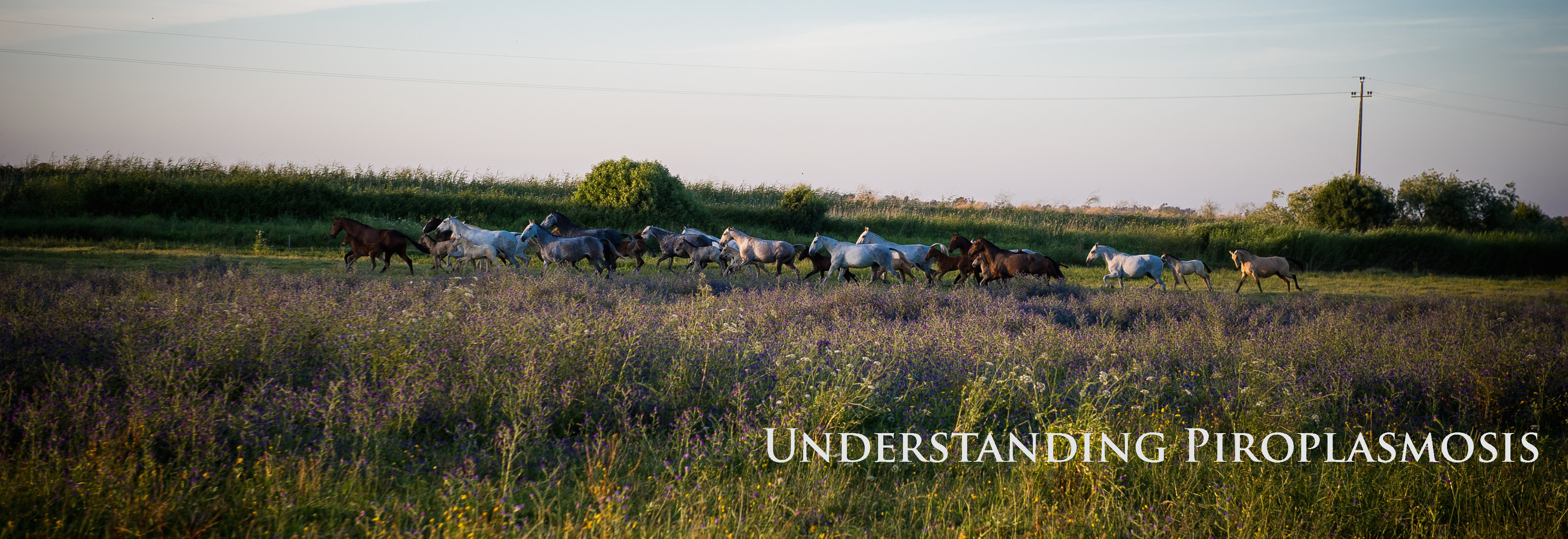Piroplasmosis – The Facts
If you are looking to import a horse into USA, Canada, Australia, New Zealand, Thailand and China the horse you choose needs to comply with the regulations according to each country with regard to Piroplasmosis among other blood test requirements specific to your country.
PLEASE NOTE –
We’ve sent many horses to the USA and other countries that have restrictions on Piroplasmosis. We understand very well the requirements and are always very careful and cautious to avoid disappointments. We always have a very good list of horses tested negative for Piroplasmosis please contact us for details. We are happy to supply references.
SO WHAT IS PIROPLASMOSIS?
It is a blood borne parasitic disease commonly found in Spain and Portugal. The disease is also present in Africa, Asia, Middle East. Central and South America and the Caribbean.
The disease is within all breeds of horses, ponies, donkeys, mules and even zebras. It is caused by the protozoan parasites Babesia caballi and the Theileria Equi transmitted to horses by ticks. However it can also be transmitted by poor hygienic practices such as re-using needles, syringes or other blood- contaminated instruments.
Mares which are infected can pass it onto their foals.
Once a horse is infected it can take from 7 to 30 days to show signs of illness
Is it Fatal?
This disease can be fatal for some horses although this is not commonly seen. For others they become lifelong carriers. They may experience a period of the disease and become sick but this can be treated and they will recover. Some horses never show any signs of a reaction.
In countries where the disease is endemic many equines have some levels of equine piroplasmosis in their blood.
HOW TO RECOGNIZE THE DISEASE – the clinical signs.
It is not completely straight forward to be able to immediately recognise that a horse is suffering from EP. This is because the clinical signs vary a lot and they are non specific. Here are the variety of symptoms the horse can experience.
- Fever
Anemia
Jaundice
Loss of appetite
Serve depression
Weight loss
Mild colic
Immobility and reluctance to move
Rapid or shallow breathing
INTERNATIONAL TRAVEL AND CONTROL MEASURES
To prevent the spread of the EP disease there are International restrictions for importing horses into some of the countries that are not considered to endemic – even though cases of EP have appeared in some of these countries. The countries that are considered ‘free’ of EP are –
Australia, New Zealand, UK, Canada, Ireland, Iceland, Japan and the USA.
The countries that have International restrictions on equines entering are –
- New Zealand
Australia
Canada
USA
China
Japan
Thailand
Horses can move freely around Europe.
For further information on importing / exporting your horse go to Transport
Every horse has to be tested for the disease by sending blood to an internationally approved blood testing lab such as Bose in Germany. Results take from 2 to 5 days.
In Portugal there are several good labs that carry out the tests. They are providing good accurate results but still the final test needs to be in Germany at Bose.
The result states whether the horse is considered Piro-Positive or Piro-Negative. In the results you will see the percentage for both Babesia Caballi and Theileria equi.
Horses must show a percentage of the disease in their blood below 40% – We recommend a percentage below 30% for any horses you consider exporting as the percentage can move a little from time to time in both directions.
The cost of the test in Portugal is roughly 60 euros plus the cost of the vet to collect the blood and for Bose 200-300 euros including collection and courier.
Buying a Lusitano or PRE Horse
When buying a horse the final blood tests required to the specific country are done just before leaving and often the horse must be transported and enter to new country within a specific time frame from the taking the blood (about 2 weeks). Once in the country they are quarrantined and tested again.
To prevent the spread of the disease avoid ticks coming in contact with your equines.
Also always practise good hygiene never sharing needles etc.
In any situation if your horse is unwell you should always call the vet.
Source Ruby Goodsell for www.baroquehorsemagazine.com





